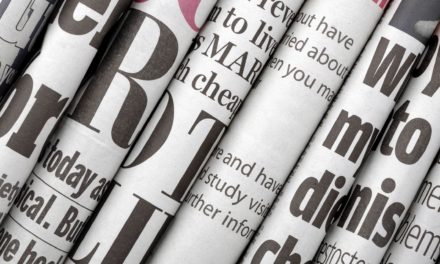Apparently, fiction writers are in the grips of an ethical dilemma. Many of us fear the rise of AI. Many more see it as a story to tell. We hate ethical dilemmas because it’s a nasty situation. We can write the old way, actually intelligently. Or we can write with a booster, artificial intelligence. The dilemma is if we stick to our own creative reach, we might take way too long, work too hard, and miss out on something. If we give AI a try, we might write at the speed of light rail, finish easily, and get in on something. The ethical/moral crisis is deciding how to write when the alternatives pose conflicting values and responsibilities.
The most important ethical rule for fiction writers is to avoid plagiarism, which in our world means stealing or passing off the ideas or words of another as our own. The expression of ideas is intellectual property and protected by copyright laws.[1] Even before the first word on page one is written, the challenge begins. Drum roll here. Is Artificial Intelligence someone? Is AI a person? Does it matter that AI is a technological product rather than an actual human? If AI is not a person, and if we are prompting an AI site or environment, does plagiarism apply?
From a legal perspective, when an AI program produces a complex written work in response to a prompt from a human, the “traditional elements of authorship” are determined and executed by the technology—not the human user—and, thus, the resulting work is not copyrightable.[2] That means you can publish it, sell it, and own it. More simply, AI is a non-human.[3] But of course, it’s not that simple. “If the human and machine’s contributions are more intertwined, a work’s eligibility for copyright depends on how much control or influence the human author had on the machine’s outputs. “It really needs to be an authorial kind of contribution. In that case, the fact that you worked with a machine would not exclude copyright protection.”[4]
On February 23, 2023, the United States Copyright Office clarified its rules in an application for copyright by the author of Zara of the Dawn. “In a groundbreaking decision, the US Copyright Office decided to grant limited registration for ‘Zarya of the Dawn’, a graphic novel that uses artificial intelligence (AI) to generate some of its images. . . ‘Zarya of the Dawn” is a graphic novel written by Kris Kashtanova, who used Midjourney, an AI platform that produces images based on text prompts, to create some of the illustrations for the graphic novel. Kashtanova applied for and received a copyright registration for the entire book in September 2022. However, in October 2022, the USCO initiated a secondary review of the registration after learning that Kashtanova used Midjourney for some of the images. The USCO issued its final decision on February 21, 2023, limiting the registration to only cover the text and the selection and arrangement of the images, but not the individual images themselves.”[5]
The Zara of the Dawn case epitomizes the debate about whether to copyright AI-produced text or images. “The decision has sparked debate and controversy among legal experts, artists, and AI developers. Some view it as a partial victory for Kashtanova and Midjourney, as it recognizes their contribution to the overall work and allows them to retain some rights over it. Others see it as a setback for AI-assisted creativity, as it denies protection for the individual images that are arguably original and expressive. Some argue that the USCO’s decision is too narrow and rigid and that it fails to account for the diversity and complexity of AI platforms and their interactions with human users. Others contend that the USCO’s decision is prudent and consistent with existing law and policy and that it preserves the human element and standard of creativity in copyright law.”[6]
ABC News headlined an August 12, 2023, article this way: “Fiction writers fear the rise of AI, but also see it as a story to tell.” ABC News sources put it this way: “For a vast number of book writers, artificial intelligence is a threat to their livelihood and the very idea of creativity. More than 10,000 of them endorsed an open letter from the Authors Guild this summer, urging AI companies not to use copyrighted work without permission or compensation.”[7] The ABC News article referenced dozens of authors and their works in progress as the “zeitgeist right now. . . whatever is in the cultural zeitgeist seeps into fiction.”
UPDF.com said, “Artificial Intelligence has brought a big change to writing. Now, many writers and novelists are using AI story writers. These amazing tools can be a great solution when you’re stuck and can’t come up with new ideas for your creative writing. You can embrace the power of AI to unleash your imagination and overcome the hurdles of creative writing, as these cutting-edge tools open up a world of endless possibilities for storytellers.”[8] At least from an ethics perspective, this sounds like plagiarism by nonhumans. That said, it’s within ethical imperatives to use AI as a collaborator that augments the writer’s creative talent rather than replacing it.
Reuters reported, “Over 200 e-books [are available] in Amazon’s Kindle store as of mid-February [2023] listing ChatGPT as an author or co-author, including ‘How to Write and Create Content Using ChatGPT,’ ‘The Power of Homework’ and poetry collection ‘Echoes of the Universe.’ And the number is rising daily. There is even a new sub-genre on Amazon: Books about using ChatGPT, written entirely by ChatGPT. But due to the nature of ChatGPT and many authors’ failure to disclose they have used it; it is nearly impossible to get a full accounting of how many e-books may be written by AI.”[9]
That begs the question of whether ChatGPT is an author, legally, ethically, or otherwise. Obviously, it isn’t human and human ethical standards cannot apply to an “it.” But there are larger ethical implications of ChatGPT. “The increasing popularity of generative AI tools like ChatGPT raises questions about the ethical implications of their use. Key concerns include biased and inaccurate outputs. Privacy violations. Plagiarism and cheating. Copyright infringement.”[10]
Scribbr offers proofreading services, editing, plagiarism checking, citation tools and reviews.[11] And it offers “Free AI Writing Resources, that will improve your academic performance and write like a pro without cheating or jeopardizing your degree. Get access to free AI writing tools, useful ChatGPT prompts, the latest articles about AI, and more.”[12]
Forbes Magazine posed an interesting question, ‘Where will we be in five years as a result of smart generative AI’? It’s answer came from an ethicist—Cindy Gordon, CEO, Innovation Leader Passionate About Modernizing Via AI. “I don’t think I have met one AI Ethicist that is not gravely concerned about the risks inherent in AI, without a vision of the world we want to live in and more clarity of a unified legal framework, and laws put into effective to avoid creating a world where machine is more dominant that mankind. . . I was impressed by the answer that ChatGPT provided and as this industry matures, we must answer more of the challenging ethical questions on AI. I think much of this is rooted in defining what it is to be human and what we want as humans versus having technology leaders continually shape our future. Movies like The Terminator are not impossible to imagine, as movies like The Minority Report are eerily more accurate due to technology advancements of companies like SenseTime, that can monitor walking, traffic, purchasing, and social data into a social ranking profile. Although banned in the USA, the ethical implications of never being able to be unknown or have my private data socially rank my habits has Orwellian overtones.”[13]
Not surprisingly, Computer.org posted a list of ethical issues. “AI-driven content generators raise several ethical concerns related to bias, plagiarism, intellectual property, misuse, and the potential to generate misinformation, fake news, or misleading content. These could have serious ramifications, such as harming reputations, spreading false information, or even inciting violence.”[14]
Obviously, the challenge AI brings to all of us dwarfs the ethical concerns writers have. That’s because AI in the fiction world is nascent now, but menacingly growing. Should we hit control/alt/delete on a novel manuscript written by a nonhuman? At the very least human novelists ought to tread slowly, type carefully, and not mimic a dumb artificial writer.
[1] https://blog.carlow.edu/2021/06/14/ethical-standards-for-creative-writing
[2] https://www.ropesgray.com/en/newsroom/alerts/2023/03/can-works-created-with-ai-be-copyrighted-copyright-office-issues-formal-guidance
[3] https://builtin.com/artificial-intelligence/ai-copyright
[4] Ibid.
[5] https://www.mmmlaw.com/news-resources/unraveling-the-zarya-of-the-dawn-decision-us-copyright-office-sets-a-new-precedent/
[6] Ibid.
[7] https://abcnews.go.com/Entertainment/wireStory/fiction-writers-fear-rise-ai-story-102231593
[8] https://updf.com/chatgpt/ai-story-writer/
[9] https://www.reuters.com/technology/chatgpt-launches-boom-ai-written-e-books-amazon-2023-02-21/
[10] https://www.scribbr.com/ai-tools/chatgpt-ethics/
[11] https://www.scribbr.com/about-us/editors/
[12] https://www.scribbr.com/ai-writing/
[13] https://www.forbes.com/sites/cindygordon/2023/04/30/ai-ethicist-views-on-chatgpt/
[14] https://www.computer.org/publications/tech-news/trends/ethical-concerns-on-ai-content-creation

I am an author and a part-time lawyer with a focus on ethics and professional discipline. I teach creative writing and ethics to law students at Arizona State University. Read my bio.
If you have an important story you want told, you can commission me to write it for you. Learn how.






 I am an author and a part-time lawyer with a focus on ethics and professional discipline. I teach creative writing and ethics to law students at Arizona State University.
I am an author and a part-time lawyer with a focus on ethics and professional discipline. I teach creative writing and ethics to law students at Arizona State University.  My latest novel is Hide & Be.
My latest novel is Hide & Be.  If you have an important story you want told, you can commission me to write it for you.
If you have an important story you want told, you can commission me to write it for you.